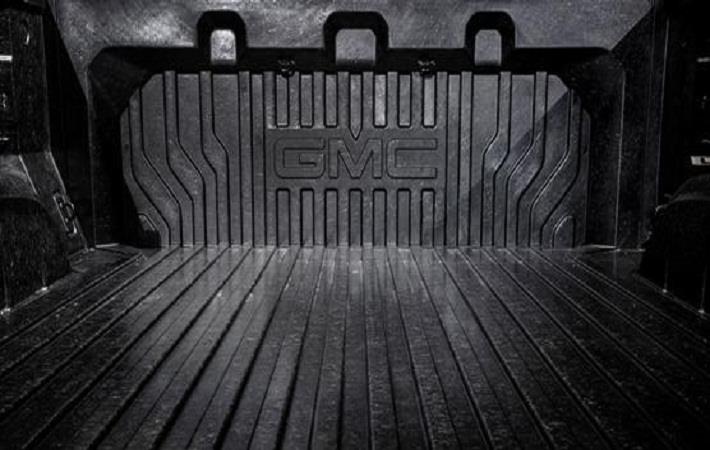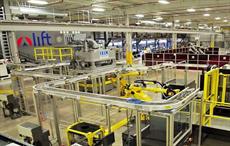
Following production startup in early June, GMC Sierra Carbonpro editions for both vehicles will begin appearing at select GMC dealerships in the US this summer. The Carbonpro panels will be produced at Continental Structural Plastics’ Huntington, Indiana, US manufacturing facility, said Teijin in a press release.
Sereebo used for Carbonpro contains randomly-orientated, isotropic carbon fibre in a polyamide matrix resin. Manufactured using with the world’s first mass-production technology for CFRTP, the moulding time for Sereebo is approximately one minute, which is significantly shorter than the moulding time for conventional carbon fibre reinforced thermoset plastics (CFRP). Compared to steel, Carbonpro is 40 per cent lighter, offers 10 times greater impact resistance, is more corrosion-resistant, and is even more readily recyclable. Finally, because of its material characteristics, Sereebo offers extended design flexibility and freedom, which allowed GM engineers to mould in many of the unique features of the Carbonpro box.
Teijin has been developing leading-edge composite product technologies and applications since establishing the Teijin Composites Innovation Center in 2008. In 2011 the company developed the world’s first mass-production technology for CFRTP, realising a production interval (takt) time of just one minute. Teijin subsequently established a technical facility in the US and a pilot plant for the fully integrated production of CFRTP in Japan. Since branding its CFRTP product as Sereebo in 2012, Teijin developed high-volume production methods in collaboration with domestic and international partners, including GM. After acquiring CSP, a global leader in automotive lightweight composite technologies in 2017, Teijin established an organisational framework for composites production, sales and evaluation in North America. GM’s adoption of Sereebo for CarbonPro is a momentous step forward for CFRTP’s use in high-volume vehicles.
Teijin is expanding its product portfolio ranging from materials to component design, as well as its global supply chain, in an effort to help automakers reduce vehicle weights. Teijin also aims to become an automotive solution provider by expanding its offerings beyond carbon fibre and glass fibre materials, for which the company is actively collaborating with other materials manufacturers. The automotive composite products business of the Teijin Group is targeting annual sales of $2.0 billion by 2030. (PC)
Fibre2Fashion News Desk – India

